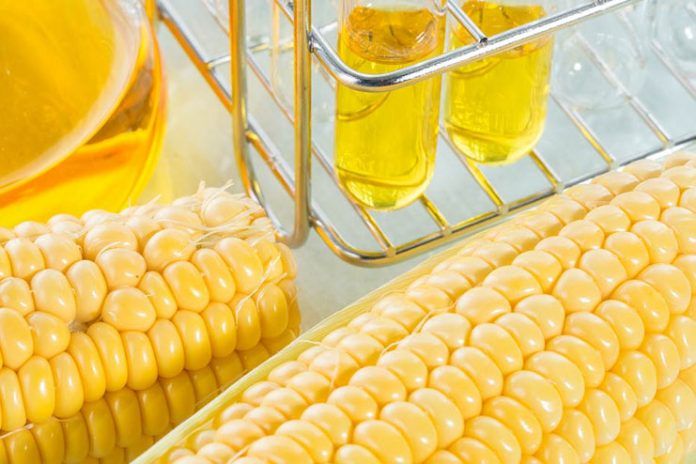Affiliate Disclaimer
Some links in this article are affiliate links. We may earn a small commission if you make a purchase through these links, at no extra cost to you. We only recommend products we find useful to our readersWould you be surprised if you got to know that the corn syrup you are consuming is not doing you any good, maybe even worse? The high fructose corn syrup has been associated with a number of health complications, resulting in the induction of tumour growth in a conducted study as well.
A new study (R) conducted by the researchers from the Baylor College of Medicine found that consuming a healthy serving of the high fructose corn syrup is equivalent to drinking around 12 ounces of sugar sweetened beverage on a daily basis. It has also been found to accelerate the development of tumors in mice.
Dr. Jihye Yun, assistant professor of molecular and human genetics at Baylor, who is also the co-corresponding author of the study stated saying that there has been a number of ongoing observational studies which have raised awareness concerning the consumption of sugar drinks, obesity as well as the heightened risks of colorectal cancer in individuals.
The current string of thought does clarify the fact stating that sugar is harmful for you owing to the fact that it increases the risks associated with obesity. Studies prior have found that the condition of obesity does have the possibility of inducing colorectal cancer but there is still an ongoing debate on whether or not the same is actually true or not.
Yun and her colleagues started off their study by generating an effective mouse model which had an early stage of colon cancer but with a deleted APC gene. If you are wondering what APC is, it is the gatekeeper of colorectal cancer. Without the presence of this specific gene, there is unprecedented growth and death of the intestinal cells without any stop, thus inducing the production of tumours.
Yun stated saying that studies have found that over 90% of patients suffering from colorectal cancer have been found to have a similar deletion or APC mutation.
With this mouse model, the main goal of the researchers was to test out the impact of the sweetened water on the tumor development in the mice. The sweetened water that was administered to the mice was nothing but 25% high fructose corn syrup which is also the main component in the majority of the sweetened beverages that people consume.
Initially, when the researchers administered the mice with the sugar drink in a water bottle to drink on their own will, the mice started gaining weight at a faster pace. In order to avoid that and to keep a controlled outlook on the study to mimic the consumption of one soda per day, the researchers did administer the mice with a moderate amount of sugary water with the help of syringe.
Following 2 months of this trial, the mouse was found to not gain weight but did end up developing tumors that were not just larger but also of higher grade in comparison to the ones that consumed regular water.
Shedding light on the same, Yun suggested saying that the observations suggest that the animals who are even at an early stage of cancer, which even occurs in several young adults as well – consuming even the modest amount of high-fructose corn syrup in the liquid form that’s available could be a contributing factor to the tumor growth as well as obesity.
Given the fact that these are just pre-clinical trials, it is going to take time to convert them into human studies to find their efficacy. In humans, it roughly takes around 20-30 years for the cancer to grow from the benign to aggressive stages.
Cantley, co-corresponding author, former mentor of Yun and professor of cancer biology in medicine and director of the Sandra and Edward Meyer Cancer Center at Weill Cornell Medicine suggested saying that this could very well be a possible reason why the consumption of sugary drinks and foods has been a contributing factor to the development of colorectal cancers in humans.
The next stage for the researchers was to find the mechanism of action. They found that the APC-model mouse who received the high fructose water had higher levels of fructose in their colons. This could very well be a contributing factor to the development of tumors owing to the same being a source of nutrition for the developing tumors in the intestine.
Several technological interventions in this has found for a fact that the consumed fructose ends up undergoing chemical changes, thus enhancing the production of fatty acids in the body which enhances the growth of the tumor even further.
The researchers further wanted to establish whether or not the fructose metabolism or the increased fatty acid production was a contributing factor to the tumor growth in the intestine or not. They divided the groups, ensuring that one group lacked the KHK enzyme which is responsible for the fructose metabolism. They did find that the group lacking the said genes didn’t end up forming any tumors.
Yun and her colleagues believe that this specific research with the impacts of the high fructose on cancer development will help in the prospect of further treatment options in the patients suffering from colorectal cancer in the future. Avoiding these drinks is possibly the best way to combat the situation and find was to handle the symptoms before it gets out of hand.

















